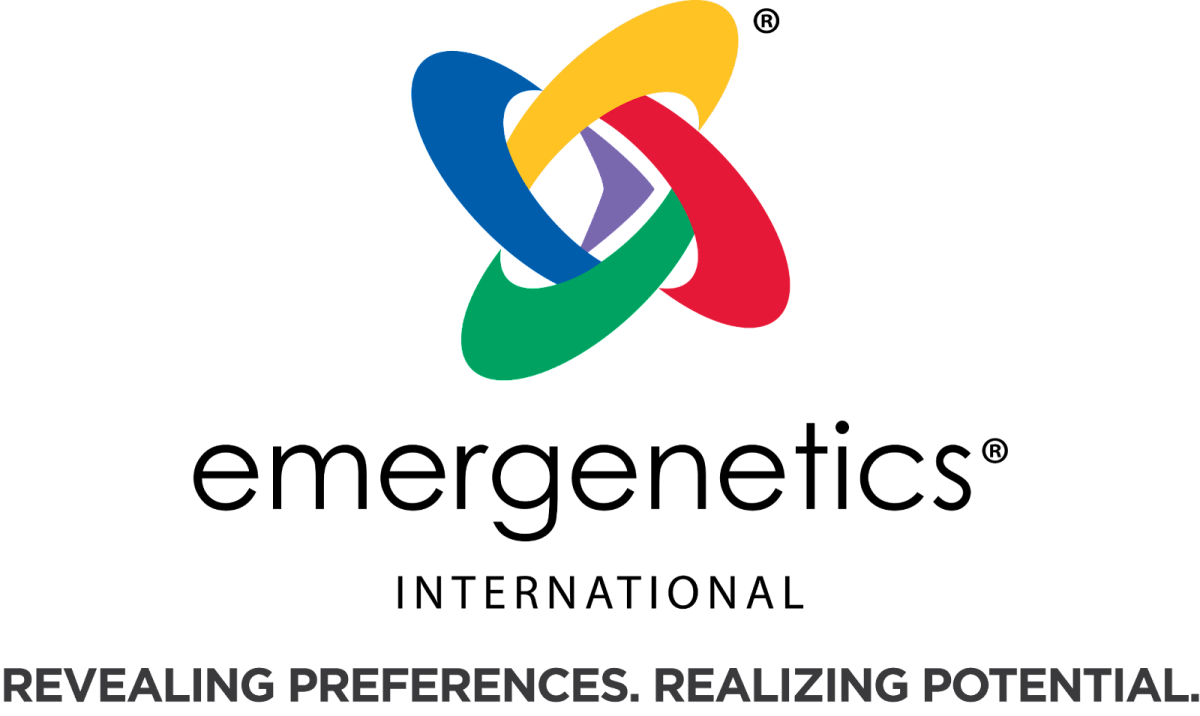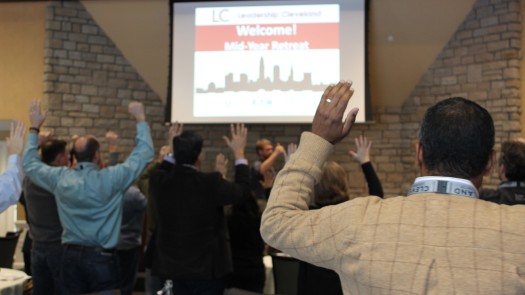Our engaging leadership development and training programs are based on the principles of experiential learning in combination with a select list of assessment tools.
The cornerstone of experiential learning is human behavior and team interaction. With the integration of the appropriate assessment tools and a highly engaging team development curriculum, Nuhop has been able to create outcome-oriented teambuilding trainings designed to focus on your goals and core business objectives.
The Team Assessment Survey
Are you interested in getting a snapshot of your team's current reality? The Team Assessment Survey (TAS) is designed to provide team leaders and members with feedback on the seven critical components associated with high-performing teams.
The TAS consists of 35 items; the online surveys take less than 10 minutes to complete. The corresponding TAS Feedback Report provides detailed item and component-level feedback, as well as suggestions on how you can improve on each of the seven components of the Rocket Model.
Using the TAS in combination with The Rocket Model: Practical Advice For Building High-Performance Teams, you can improve your ability to build and manage high-performing teams.

The Emergenetics® Profile
The Seven Attributes of Self-Awareness
When you know who you are, your world opens up. The Emergenetics® Profile is the only assessment in the industry that reveals Thinking and Behavioral insights, empowering individuals with an understanding of their strengths and an appreciation for the benefits of cognitive diversity. People can communicate more effectively, teams can work together more productively, and organizations can build more engaging, high-performing cultures.
What can you gain from taking the Emergenetics Profile?
Self-awareness is the strongest predictor of overall success in the workplace, according to Green Peak Partners and Cornell University. The Emergenetics Profile is a powerful first step in:
- Achieving your vision for your future, whether that includes:
- Strengthening individual performance
- Working more productively with teams
- Building better relationships with those around you
What does the Emergenetics Profile reveal?
The Emergenetics Profile is rooted in the concept that who you are is the result of your genetic makeup and your life experiences. The assessment reveals your preferences for four Thinking and three Behavioral Attributes, which provide insight into the way you prefer to navigate work and life.
Emergenetics Program Offerings
Meeting of the Minds (10 or more participants)
Emergenetics signature workshop – the Meeting of the Minds – can be delivered virtually or in person. Attendees learn to use their strengths to achieve their potential while organizations discover the tools to maximize performance and enhance workplace culture. Designed for adult learners, the program’s content is simple to understand, immediately applicable, and engaging to all!
Team Dynamics for Small Groups (3 to 9 participants)
Our introductory workshop empowers attendees to discover their personalized and collective preferences. Providing a foundational understanding of Emergenetics, Team Dynamics for Small Groups gives teams practical applications and insights to enhance communication and collaboration to achieve greater results.
Learning Uncovered
Lifelong learning helps us become more confident, purposeful, and skilled. By learning, we can achieve personal aspirations and organizational goals; we can address and deal with challenges big and small.
This Learning Uncovered session provides an approach to help uncover everyone’s hidden powers and talents, with activities that encourage colleagues from all parts and all levels of the organization to connect, share, and learn from each other. It’s designed to help participants recognize how different learning and thinking preferences play out in the workplace. This is not about learning about other cultures but more about understanding others' perspectives based on their preferences. It can be used as a series of independent modules or run consecutively to build a powerful one-day development program around conflict in the workplace or diversity & inclusion.
The four activities in this session can be used to :
-
Develop skills in time and resource planning and many of the skills needed in administrative, operational, and supervisory roles
-
Encourage careful listening, appropriate choice of language, awareness of the ‘state of mind’ of colleagues, and sensitivity and willingness to be flexible in how things are done in order to support others in ways they respond
-
Applying the listening and coaching skills in activities that encourage and develop big-picture thinking, imaginative and creative responses, risk-taking, pattern recognition, and the exploration of new possibilities
-
Finally, bring all these skills together in a complex logical and analytical problem-solving task that requires an understanding of the challenge, evaluation of options, selection of an appropriate strategy, management of time and people, monitoring of progress, and ongoing process improvement.
Working with Conflict Workshop
The Working with Conflict Workshop session includes activities that facilitate a one-day conflict resolution skills and strategies training session. Conflict exists in every organization, but managing conflict well can also be a positive experience, providing there is an increased understanding for those involved by breaking down communication barriers and by building trust between individuals and the team. The style of this workshop is highly interactive and is based on small group practical work, reflection, and discussion.
Presentation materials have deliberately been kept to a minimum. The design of this workshop means that participants are actively involved in exploring their own experience and learning and not simply receiving instruction and trainer input.
-
To understand more about the factors that contribute to conflict in both aggressive and passive forms
-
To develop an enhanced understanding of your own behavioral style, and that of others, so that you can be more effective in dealing with challenging people and situations
-
To be able to recognize potential conflict situations and to develop the skills required to avoid or manage these
-
To practice using a variety of conflict resolution techniques
-
To develop effective responses to diffuse and deal with potentially angry people and violent situations, contributing to enhanced personal safety
Developing Others Through Coaching
The Developing Others Through Coaching Workshop is a one-day workshop to build coaching skills. Specifically designed to develop effective coaching skills such as behavioral observation, feedback, questioning, coaching, and development planning for performance improvement of others in the team.
This program focuses on:
-
Observation skills, in order to discriminate between effective and ineffective behaviors
-
Giving feedback and raising awareness of the impact of behaviors on others
-
Using appropriate questioning skills to coach others to develop ideas
-
Helping others to review performance as part of a learning process
-
Coaching others in personal and professional goal-setting
-
Developing effective management skills
-
Enhance people skills
-
Performance improvement of others
Building Personal Resilience Workshop
Resilience is the ability to thrive on positive stress and avoid distress. How do we manage the situations that create stress and recover from these with motivation and a sense of well-being? The workshop is suitable for anyone with a personal or professional interest in building resilience. This includes HR professionals, Learning and Development specialists, teachers and educators, trainers and consultants, and operational managers.
The style of this workshop is highly interactive and is based on small group practical work, reflection, and discussion. It uses a range of experiential learning activities and coaching resources to illustrate and rehearse skills to help address commitment, control, and challenge.
There are 4 x 90-minute phases during the workshop:
-
Phase 1: Understanding what we mean by resilience, when we need it, and how to develop it
-
Phase 2: Developing a new range of thinking and coping strategies
-
Phase 3: Learning from experience and seeing problem-solving as an opportunity
-
Phase 4: Setting realistic development goals within support networks
